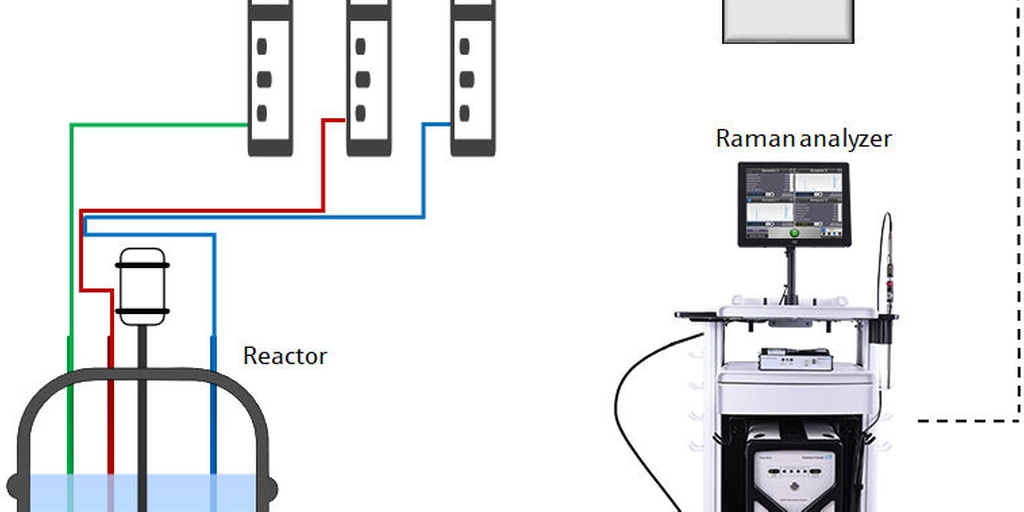Semi-batch polymerization
Monitoring and control with Raman analyzer, powered by Kaiser Raman technology
Semi-batch reactions offer several advantages over traditional batch reactions, such as greater selectivity of products, gradual addition of reactants for better process control, and the ability to isolate product as it is formed. Polymerizations are often done in semi-batch mode because it offers the ability to carefully control the composition of the product in order to create high-performance materials with fine-tuned custom properties.

Schematic diagram of process-control system for semi-batch polymerization.
The results
-
Optimization of a sensitive semi-batch reaction
-
Real-time data analysis for reliable process control
-
Non-contact optics for minimal disturbance to the reaction system
The challenge
A significant challenge of semi-batch reactions is that the concentrations of the reactants constantly change, in both relative and absolute senses. If uncontrolled, this variation in the concentrations of reactants can easily result in unwanted properties in the product. So, this reaction mode requires continuous real-time monitoring of the concentrations of the reactants. Simply adding the reactants in the correct ratios is insufficient.
Our solution
A Kaiser Raman analyzer was used to deliver and collect 785-nm near-infrared radiation. A non-contact optic was used to perform the analysis through a pressure- and temperature-rated sapphire viewport in the wall of the reactor. Each sample acquisition consisted of 60 seconds of illumination of the reactor contents using 125mW of laser radiation followed by a 20-second pause. Five to seven data points from each monomer were used to generate quantitative Raman data for real-time process control.
Raman spectroscopy was demonstrated to be a simple, accurate, and effective method of process analysis for the purpose of real-time monitoring and control of a semi-batch polymerization. Raman data were able to be used for real-time feedback control of the process to maintain ideal process conditions in a closed-loop reaction system and to produce a highly consistent product between batches, ensuring consistent quality of sensitive high-performance materials.
